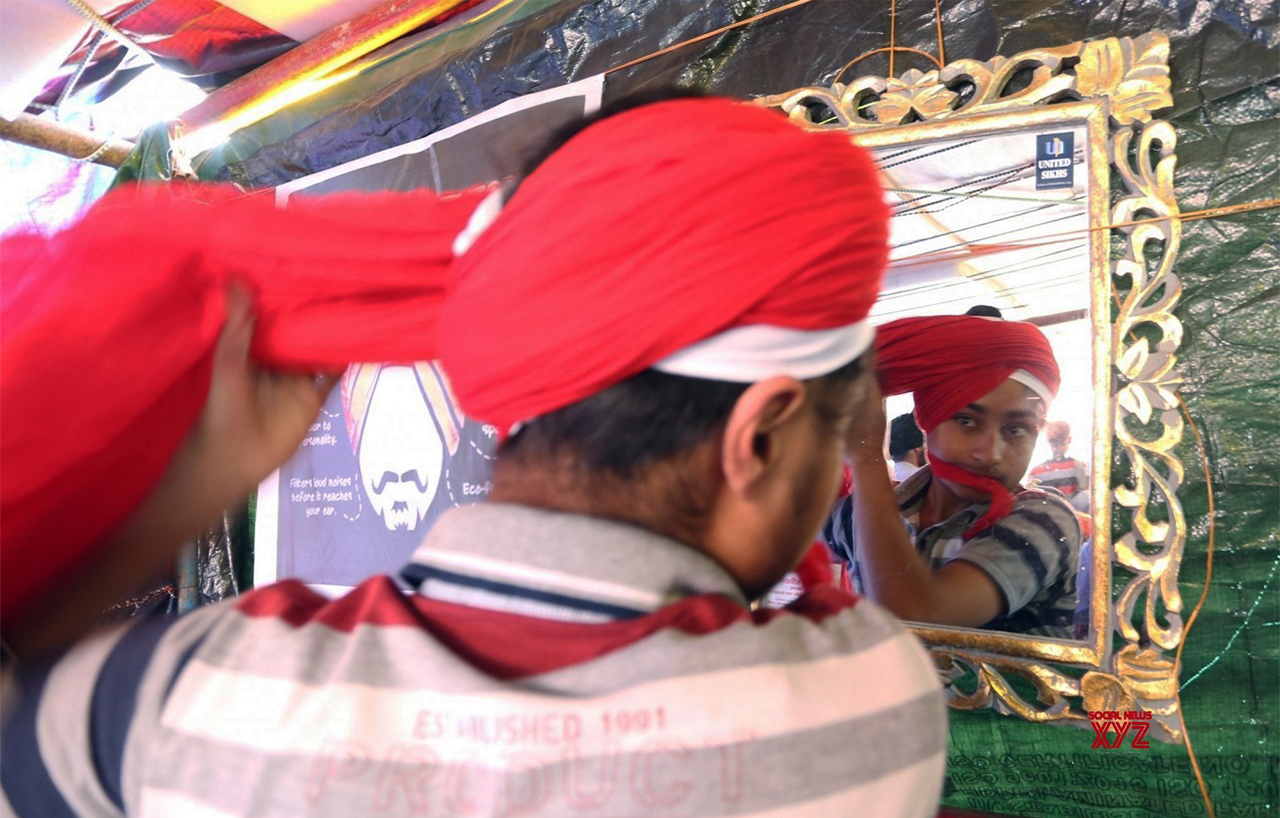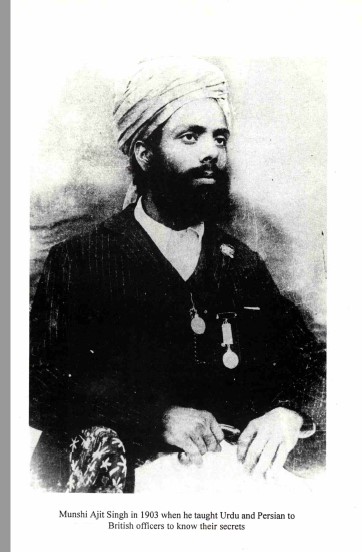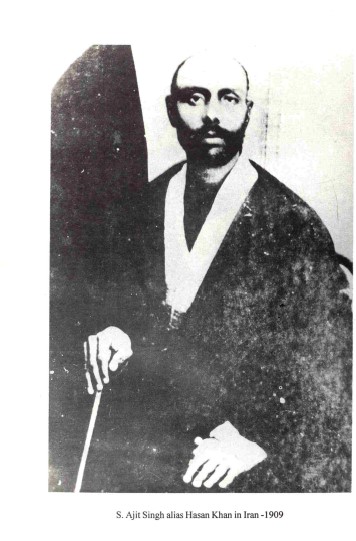Groundxero News Report | February 23, 2021
February 23rd, 2021 marks the 140th birth anniversary of Sardar Ajit Singh, who led the Pagri Sambhal Jatta movement against the exploitative farm laws enacted by the British in 1906. Ajit Singh, uncle of famous Indian freedom struggle hero Bhagat Singh, was born on 23rd February 1881 at Khatkar Kalan village in then Jalandhar district of pre-partition Punjab. The farmer unions protesting against the Narendra Modi government’s three farm laws have given a call to observe ‘Pagdi Sambhal Diwas’ today, to commemorate Sardar Ajit Singh on his birth anniversary and rekindle the memories of that glorious anti-imperialist peasants’ rebellion against three laws passed by the British government.
In 1879, the British Government constructed the Upper Bari Doab canal, to draw water from the Chenab river to Lyallpur, in present-day Pakistan. The British Government encouraged farmers to settle in the uninhabited area, and promised free land. The farmers who migrated there, soon, transformed the entire area into fertile land. The British Government brought in three laws in 1906— the Doab Bari Act, Punjab Land Colonisation Act and the Punjab Land Alienation Act. These laws introduced inheritance by primogeniture, vastly increased the price of water drawn from the canal for irrigation and also made a 25% increase in revenue rates. The farmers feared snatching of their lands, denial of ownership rights to them, thus reducing them to sharecroppers. The new laws also prohibited the farmers from building houses and stated that if the eldest heir died before adulthood, the land would be seized by the British government.
The farmers launched protests against these laws. The protests turned violent in many areas, and spread like wildfire. A number of meetings were held in different cities of Punjab to oppose the three laws, On 22nd March 1907, at one of the largest protest meetings held at Lyallpur, Banke Dayal, editor Jhang Syal, recited his famous poem-Pagdi Sambhal Jatta, and afterwards the song became an anthem of the peasants’ protest against the three British Laws, and the peasants’ uprising came to be known as ‘Pagri Sambhal Jatta’ movement.
Sardar Ajit Singh was one of the primary organizers of this uprising. He was a powerful speaker, and addressed most of the public meetings. One of his most inspiring and fiery speeches, which he delivered on 21st April at Rawalpindi, was described as ‘highly seditious’ by British officials and a case of ‘sedition’ under 124-A was registered against him.
The British Government was compelled to repeal the three laws in May 1907. But Lala Lajpat Rai was arrested on 9th May and Ajit Singh on 2nd June 1907 and deported to Mandalay prison in Burma for six months. However, due to great public pressure and apprehension of unrest in the Indian Army, both of them were released in October 1907.
In 1909, Sardar Ajit Singh escaped to Iran and lived in a self-imposed exile for 38 years. In March 1947, he returned to India. On the night of 14-15 August 1947 midnight, after listening to the famous Pandit Nehru’s ‘Tryst with Destiny’ speech, he felt overwhelmed and breathed his last at about 3.30 am. He was to address a public meeting to celebrate Indian freedom after day break.
The ‘Pagdi Sambhal Diwas’ observed today is part of the series of protest events announced by the farmers’ unions till 28 February, apart from the Maha-Panchayats being held in several states to spread the farmers’ protest demanding repeal of the three farm laws and legal guarantee for MSP. Tomorrow the farmers will observe the ‘Daman Virodh Diwas’, to protest government atrocities on protesting farmers and activists. On 26 February, the farmers will organise the ‘Kisan Yuva Diwas’ and on 27 February on the anniversary of Chandra Shekhar Azad’s martyrdom, and Guru Ravidas Jayanti, ‘Kisan Mazdoor Ekta Diwas’ will be celebrated.
This is how memories of the past resistances are preserved within the present social movements themselves, and are made into living, breathing narratives that succeed to move millions. If the memories stored inside the glass boxes of the museums, make them static, memories mobilized within the spaces of the social movements, are turned into dynamic tools of moving forward and intensifying the resistance struggle itself.
Feature Image : Pagdi Sambhal Diwas being celebrated at Ghazipur border on 23rd February. Photo Courtesy: SOCIAL NEWS XYZ



